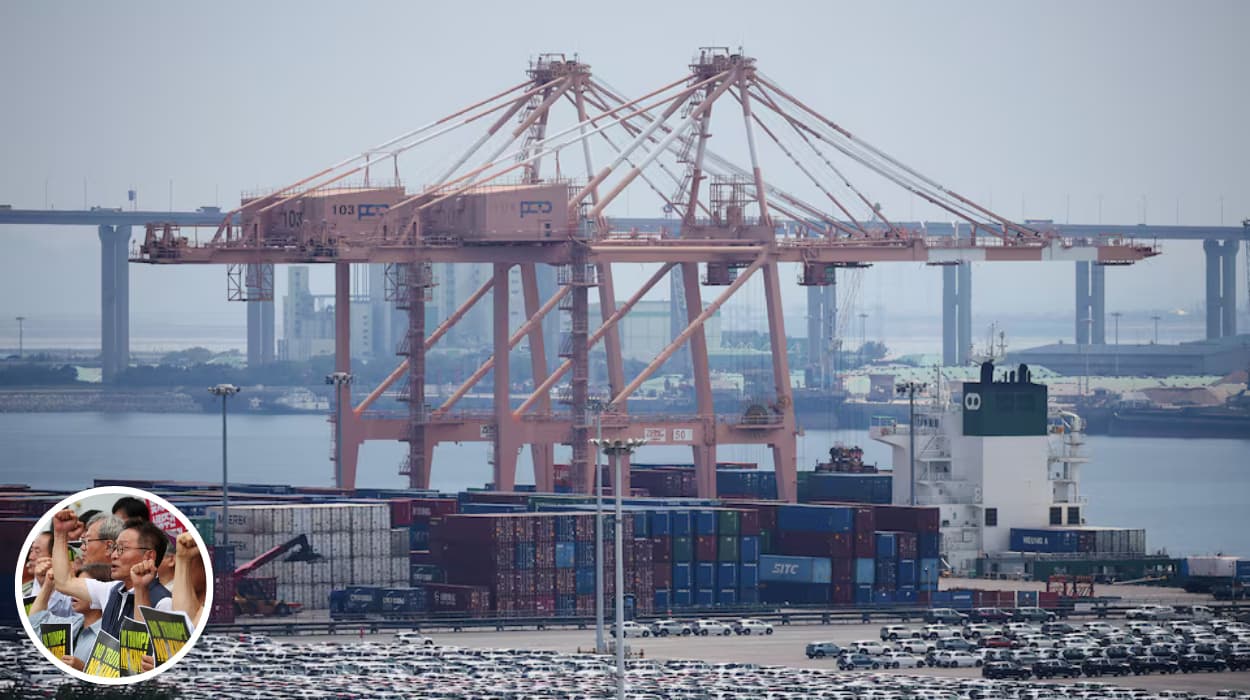Summary
- South Korea's government clarified there is no written pact or formal agreement on a proposed US-South Korea trade deal.
- The statement highlights ongoing complexities and negotiations between Washington and Seoul regarding trade terms.
- Conflicting interpretations have surfaced about the status and details of the trade discussions.
- The development may impact economic and diplomatic relations between the US and South Korea amid global trade tensions.
- The announcement underscores challenges in international trade diplomacy and agreement transparency.
South Korea has officially clarified that no written or formal trade agreement exists with the United States regarding a new trade deal, despite previous speculation and reports suggesting otherwise. This statement highlights the ongoing and complex nature of trade negotiations between the two countries, indicating that discussions remain unsettled and that no binding pact has yet been finalized or documented. The clarification comes amid heightened global trade tensions and reflects the cautious approach both nations are taking to ensure any future agreement aligns with their economic and strategic interests.
What Has South Korea Officially Said About Its Trade Pact with the US?
As reported by multiple media outlets covering the issue, South Korea's government has explicitly stated it holds no written agreement or formal trade pact with the United States regarding any new trade deal. This revelation addresses circulating reports and speculations suggesting that a trade agreement had already been finalized or documented between the two countries.
The lack of any written pact indicates that the trade discussions between South Korea and the US remain in flux, with negotiations still ongoing or not yet concretely codified in official documents. This announcement came after earlier claims or assumptions by various stakeholders about the status of the trade talks, clarifying that no binding or formal contract exists at this stage.
Why Is South Korea’s Statement Significant in the Context of US Trade Talks?
The US is currently engaged in complex trade discussions with several nations, pursuing agreements that align with its economic policies and strategic interests. South Korea, as a key US ally and major economic partner in Asia, is an important player in these trade negotiations.
By stating unequivocally that no written trade pact exists, South Korea signals that the negotiations have not yet reached the level of formal agreement or submission for legal ratification. This has implications for business communities, policymakers, and international trade observers monitoring the progress of US trade policy and its regional impact.
South Korea’s clarification arises in the context of heightened trade tensions globally, with the US having implemented tariffs and sanctions on multiple countries, fostering a complex diplomatic environment where transparency and trust in trade agreements are critical.
What Are the Implications for US-South Korea Economic Relations?
The absence of a written trade deal reflects the delicacy of the ongoing negotiations and potential compromises that both sides are considering. It suggests that substantive issues remain unresolved, potentially around tariffs, market access, regulatory standards, or intellectual property protections.
Economic experts and trade analysts caution that the statement may delay firm commitments or enforcement of trade rules, leading to uncertainty among exporters, importers, and investors in both countries. It may also provide leverage to either party in future discussions over the exact terms of trade cooperation.
In addition, the situation may affect broader diplomatic relations, as trade agreements often serve as pillars of strategic alliances and economic interdependence. South Korea’s stance to emphasize the absence of a written pact underscores the priority of securing favorable terms without premature commitments.
How Does This Develop Against the Backdrop of Global US Trade Policy?
The US government, under current leadership, has demonstrated an assertive approach to trade, emphasizing “fair” trade deals that protect American industries and jobs. It has imposed tariffs on several trading partners and sought to renegotiate existing accords, including the landmark US-Korea Free Trade Agreement (KORUS FTA).
South Korea’s announcement aligns with a pattern of cautious negotiation prevalent in many US trade dialogues, where tentative proposals are scrutinized and often contested before agreement finalization. The evolving rules of trade diplomacy in this era involve multifaceted discussions that extend beyond mere tariff schedules to encompass technology, national security, labor standards, and environmental considerations.
Industry stakeholders anticipate continued dialogue and hope for a mutually beneficial resolution that sustains the robust economic exchange between the US and South Korea while adapting to the changing trade landscape.
This detailed news report reconciles statements and contextualizes the development of the US-South Korea trade discussions, reflecting the current state of affairs as no formal, written trade pact has been confirmed or signed by South Korea. The dynamic nature of international trade negotiations remains a key theme as both countries navigate their economic and strategic interests in a complex global environment.

